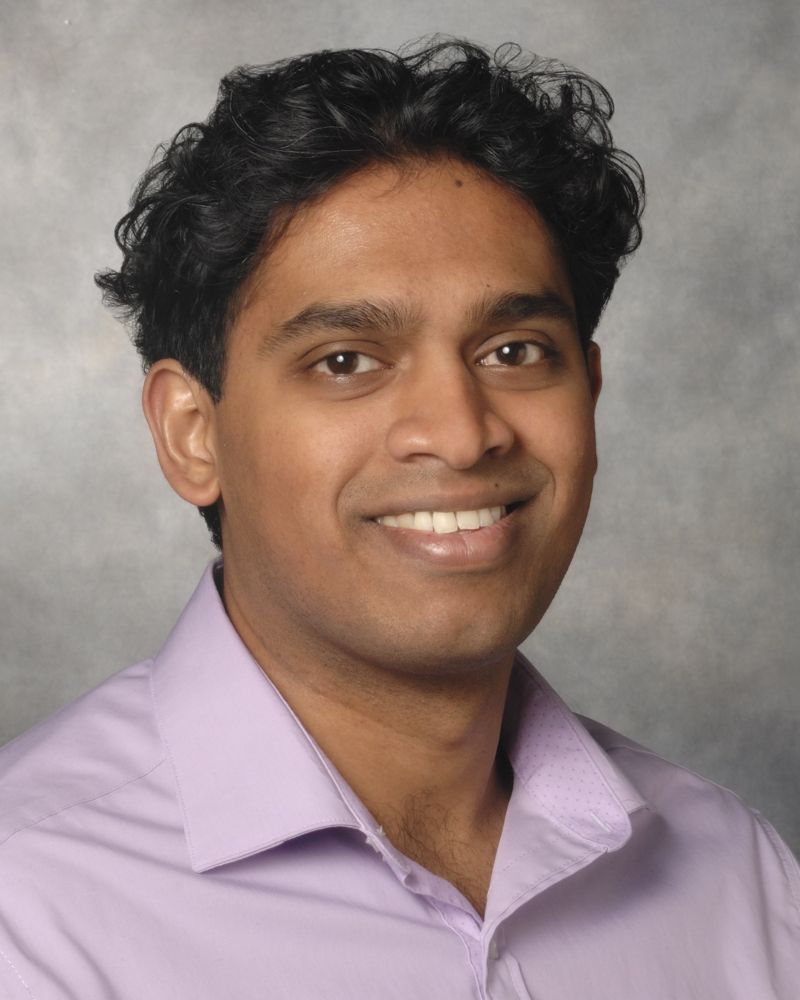Dr. Deepak Dinakaran – 2025 Feature Grant Recipient
 Clinician Scientist, Radiation Oncologist
Clinician Scientist, Radiation Oncologist
Sunnybrook Health Sciences Centre, Toronto, Ont.
Generously funded by DUNN with Cancer
Project Title: “RadioPDT-triggered nanoparticle release of Temozolomide in Glioblastoma Therapy”
Description of Project:
Glioblastoma (GBM) is a devastating, fatal tumour that is treatable, but not curable. After surgery establishes the diagnosis, it is mainly managed with chemotherapy and radiotherapy to preserve quality of life and extend survival. Radiotherapy is an effective treatment to slow progression, but the amount of radiation dose given is limited by the toxicities. Chemotherapy with temozolomide (TMZ) increases this benefit by approximately 3 months of additional survival.
We recently discovered a way to enhance TMZ’s effectiveness with nanoparticle-based on-demand drug release. TMZ is safely encapsulated in the nanoparticle, travels to the tumour, and rapidly releases the drug on command when exposed to radiation. This project will evaluate the effectiveness of this drug delivery mechanism in increasing therapeutic effect by using advanced microscopy to detect drug release in GBM cells, stopping or delaying tumour growth in preclinical models, as well as assessing the reduction in toxic effects on normal organs.
The impact of using this novel nanoparticle delivery mechanism is that it leverages the radiation already being delivered to significantly enhance the effectiveness of chemotherapy in treating GBM. Thanks to the funds from Brain Tumour Foundation of Canada’s Feature Grant, we can explore this novel drug release mechanism that could enhance the effect of theoretically any drug. Success in these studies can lead to first-in-human trials in Sunnybrook’s Odette Cancer Centre.
Personal/Professional Impact:
I would like to thank Brain Tumour Foundation of Canada and the Dunn with Cancer fund for supporting my work on using nanoparticles and radiation to treat glioblastoma more effectively. Over the last 13 years, I have had the privilege to participate in the care of GBM patients. The standard-of-care treatments I provide are usually effective, but I have always found the outcome unacceptable. I draw motivation from my patients to conduct innovative research that will have a meaningful impact on this outcome. As an early-career researcher with a bold, innovative idea, finding funding for research that does not conform to contemporary cancer research themes can be quite challenging. Yet, GBM is not a disease that has benefited from contemporary thinking for the last 20 years. That is why I greatly appreciate this grant, as it provides an excellent launch to my efforts to bring novel and potentially high-impact treatments that GBM patients need. Throughout my career, I aim to be part of the change that transforms GBM from a deadly, devastating disease to one that we can overcome.